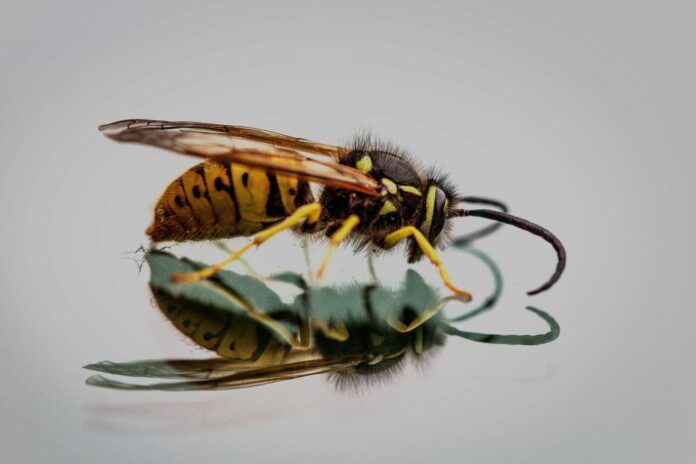Did you know that bees are a vital component of our food ecosystem? Bees can significantly enhance crop production, improve fruit quality, and even boost the nutritional value of our food. Moreover, 75% of the world’s food crops rely (at least in part) on bee pollination.
Yet sadly, a global decline in wild bee populations is a cause for concern. This decline is driven by factors such as habitat loss, pesticide use, climate change, and diseases. It poses a threat not only to agricultural productivity, but also to biodiversity and ecosystem health.
To better understand the contribution of wild bees to Canada’s agricultural landscape, a team of researchers embarked on a comprehensive study to illuminate the important role of bees in the nation’s agriculture. They gathered publicly available data on crop locations, crop yields, nutrient content, the net value of farm production, and the location of wild bees’ natural habitats.
This study was published in Environmental Research Letters, and led by Dr. Gabriela Duarte at the ISNature in Brazil alongside Dr. Richard Schuster from Carleton University and Dr. Matthew Mitchell from the University of British Columbia.
Their results illustrated that wild bees in Canada feed an estimated 24.4 million people annually. This contribution translates into $2.8 billion in income for farmers each year. Provinces like Saskatchewan, Ontario, and Alberta reap the most significant benefits from wild bee pollination, with the potential for even more invaluable gains if bee habitats are restored and protected.
Conversely, the researchers found that without bees nearby, there is a significant benefit gap — which, if addressed, could feed almost 30 million people and generate $3 billion in farmer income every year.
Although the analysis didn’t cover all of Canada’s cropland, 76% was analyzed. Of the crops assessed, 45% relied on bees to some extent, covering almost 15 million hectares of Canada.
In light of these findings, safeguarding wild bee populations should be a top priority. By promoting the conservation and restoration of bee habitats, Canada gains significantly in terms of agricultural productivity, economic prosperity, and public health.
The humble bee, often overlooked or swatted away in the hustle and bustle of modern life, emerges as a silent hero of Canadian agriculture. As we reflect on the profound impact of wild bees on our food system, perhaps we’ll find a newfound appreciation for the “saving the bees” cause.







































